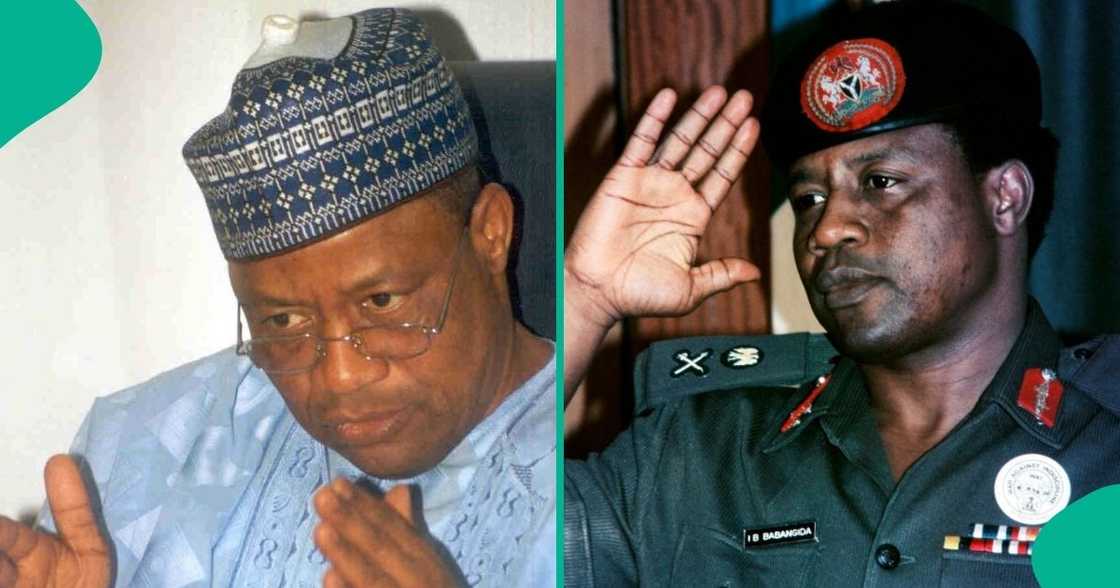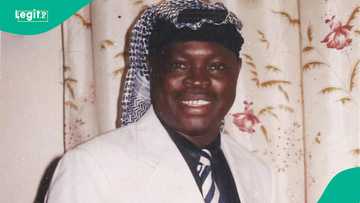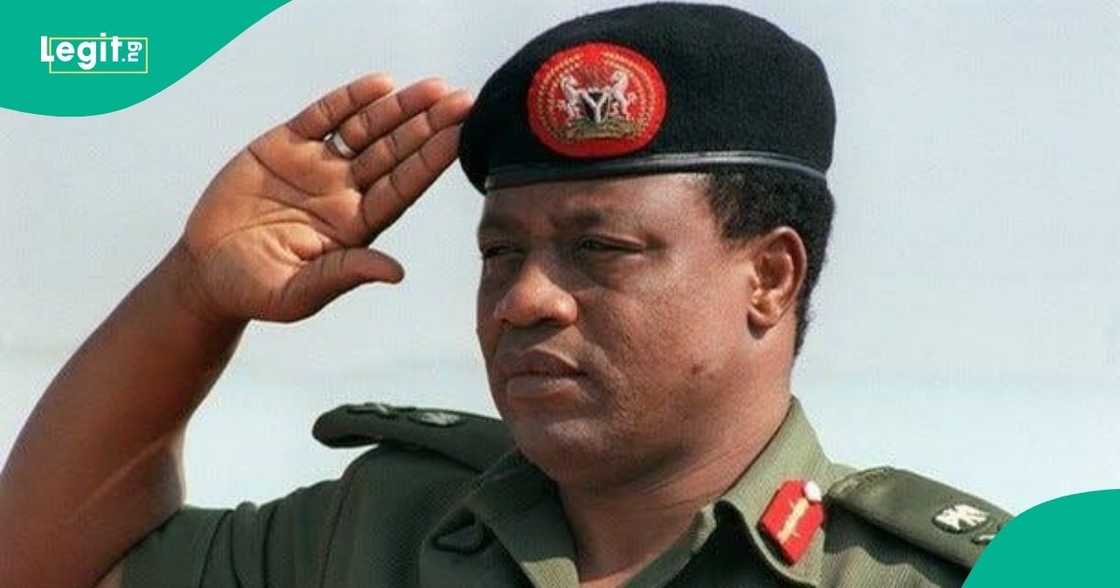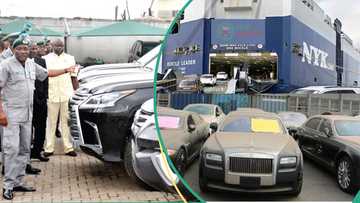Despite Okigbo's Report, Babangida Finally Explains How He Handled $12.4bn Gulf War Oil Funds
- Former military President Ibrahim Babangida stated that his administration used Nigeria’s $12.4 billion oil windfall for infrastructure projects and economic stability rather than misappropriating funds
- He attributed Nigeria’s economic struggles to excessive public spending and introduced the Structural Adjustment Programme (SAP) to reduce oil dependence, control inflation, and stabilize the economy
- Babangida dismissed allegations of mismanagement, insisting that governance requires prioritizing spending and arguing that funds were used responsibly despite public criticism
CHECK OUT: Education is Your Right! Don’t Let Social Norms Hold You Back. Learn Online with LEGIT. Enroll Now!
Former military President, General Ibrahim Babangida, has defended his administration’s management of Nigeria’s $12.4 billion oil windfall, arguing that the funds were used for infrastructure development and economic stability.
Babangida attributed the country’s economic struggles to widespread wasteful spending and excessive consumption that weakened long-term growth.

Source: UGC
“What I have done is not unusual in this country. Somebody did it before me, but I won’t mention names.
“We undertook the construction of various ports and other projects, including bridges," Babangida stated.

Read also
"Height of heartlessness": MURIC calls out IBB for trying to "rewrite history" in latest memoir
He explained that while the oil windfall could have been allocated to the Federation Account, his administration decided to monetise the revenue to ensure that state and local governments received a share.
“If all we could spend between 1988 and 1994 was $12.4 billion, that is very good,” he argued.
Reflections from Babangida’s Autobiography
In his recently launched autobiography, A Journey of Service, Babangida provides a detailed account of his administration’s economic policies and the challenges of managing oil revenue.
He contrasted his tenure with that of General Yakubu Gowon, whose government, he said, used similar oil gains to fund large-scale infrastructure but also fostered economic inequalities through policies such as the Indigenisation Decree of 1972.
Babangida noted that the influx of oil revenue encouraged extravagant public spending and systemic corruption, ultimately distorting Nigeria’s economic structure.
He pointed out that by the late 1970s, corruption had extended into high-ranking positions, contributing to political instability.
The Structural Adjustment Programme and Economic Reform
To address Nigeria’s economic challenges, Babangida introduced a series of reforms, including the Structural Adjustment Programme (SAP), which aimed to stabilise the economy by reducing dependency on oil, adjusting the exchange rate, and cutting subsidies.
He acknowledged that these policies were controversial but insisted they were necessary to correct the country’s fiscal imbalances.
“Accusations of corruption overshadowed the heady days of our nation’s oil boom,” he wrote.
He added that previous administrations failed to diversify the economy despite significant oil revenue.
Instead, government borrowing increased, leading to rising imports, declining local production, and financial instability.
Controversy Over the Dedicated Account
One of the most debated aspects of Babangida’s tenure was the creation of a Dedicated Account through which the oil windfall was managed.
The Okigbo Panel report alleged that $12.4 billion flowed through the account, with $12.2 billion spent on projects deemed non-beneficial to the Nigerian economy.
In response to these allegations, Babangida maintained that the funds were used responsibly.
“People believed that we shared some kind of booty. I didn’t start Ajaokuta, for example, but by the time I took over, $4 billion had been sunk into it. Having invested so much, it would have been unfair to let it waste away,” he argued.
He dismissed claims of misappropriation, asserting that governance involves making decisions based on priorities, even if they differ from public expectations.
“Once you run a government, you don’t put money in the bank. Pius (Okigbo), I’m happy, did not say somebody stole that money,” he said.
Legacy of Nigeria’s Oil Wealth

Source: Getty Images
Babangida concluded that Nigeria’s oil revenue has historically been mismanaged due to a lack of long-term vision, a problem that persisted across different administrations.
He criticised past governments for creating state-owned enterprises that became financial liabilities instead of contributing to economic growth.
His government’s decision to implement economic restructuring, he said, was driven by the need to reduce Nigeria’s dependence on oil and to foster a more sustainable economic framework, Daily Trust reported.
“Public sector expenditures expanded rapidly without adequate attention to the sustainability of government revenue,” he noted.
Babangida speaks on death of Dele Giwa
Previously, Legit.ng reported that former military president, General Ibrahim Babangida (retd.), has denied any role in the assassination of veteran journalist and Editor-in-Chief of Newswatch, Dele Giwa, who was killed by a parcel bomb on October 19, 1986.
Speaking at the launch of his autobiography, A Journey in Service, in Abuja on Thursday, February 20, Babangida stated that the long-standing allegations against him were unfounded and that media sensationalism had hindered the investigation.
PAY ATTENTION: Сheck out news that is picked exactly for YOU ➡️ find the “Recommended for you” block on the home page and enjoy!
Source: Legit.ng





